Introduction
Our last two blogs focused on the costs of diagnosis and treatment of symptomatic testosterone deficiency. You can see that, while you could really change your quality of life with treatment, it is not cheap. The good news is that there are things you can do right now that could increase your testosterone levels and possibly help you avoid this expense.
Let’s talk about five of the big ones today, while each will help, together they are synergistic.
1. Lose Weight
Studies have shown that roughly 1/3 of Americans are overweight and 1/3 are clinically obese. Obesity is likely to be the condition of the century, with massive effects on the health and wellbeing of the individual and of society as a whole. For today’s discussion we are limiting this to its effects on testosterone levels. What we see in overweightness and mild obesity is a drop in total testosterone but usually no significant drop in free testosterone because the insulin resistance which increases with weight also causes a drop in Sex Hormone Binding Globulin. As weight increases into the moderate or severe obesity categories, estradiol rises and testosterone falls due to increases in fat cell aromatase activity, resulting in suppression of the Hypothalamic-Pituitary-Testes axis (HPT). This causes a fall in both total and free testosterone. While it is much more complicated than this, with factors like cytokines, apokines, cortisol, sleep apnea, insulin, leptin, loss of muscle mass, and loss of sense of wellbeing and motivation thrown into the mix, the total relationship of weight and testosterone is beyond the scope of this talk. Suffice it to say that a modest loss of weight will cause a modest increase in testosterone whereas losing >15% of the weight will result in significant increases in total and free testosterone. These increases in testosterone may make it easier to lose more weight or maintain what you have achieved. Treatment of testosterone deficiency may also make it easier to lose weight, breaking the vicious cycle of weight gain to testosterone lost to more weight gain.
2. Exercise
Studies in men have shown that resistance exercises like weight training and high intensity interval training can increase testosterone in the short and long term. Exercise results in loss of fat weight which helps as per the obesity discussion and addition of muscle mass which reduces insulin resistance and some of the inflammatory cytokines. This can result in as much as a 20% increase in total testosterone, which is enough that most men will feel a significant improvement in low-T symptoms.
3. Healthy Foods & Vitamins
Eating balanced diet with adequate protein, carbs before exercise, and healthy fats can help increase testosterone. Vitamins A, B, C, D, and E have all been associated with increasing testosterone along with zinc. Boron can reduce sex hormone binding globulin making more free testosterone available as well.
4. Reduce Alcohol & Drugs
Alcohol affects all three components of the HPT axis resulting in lower levels of LH and less stimulation of the testes which are, themselves, being poisoned by the ethanol. Cessation or significant reduction in alcohol intake can reverse some, and possibly, all of this effect. Opioids and narcotics suppress the HPT axis as well. The THC in marijuana suppresses the release of GnRH by the hypothalamus reducing testosterone levels. Regarding CBD, it likely reduces testosterone production, but reduces its conversion to estradiol by the fat and its destruction by liver enzymes, so the overall effect is probably neutral. The long-term effects on the testes is not certain.
5. Reduce Stress
It’s not exactly known how stress reduces testosterone, but we know it does. Not only that, but low testosterone predisposes you to stress, so it’s another vicious cycle. Reducing stress through weight loss; adequate sleep; diets high in protein and low in fat, salt, refined sugars; exercise; deep breathing exercises, adding self-time activities, and possible testosterone replacement therapy can relieve stress and stop this cycle.
Conclusion
None of these things are easy lifestyle changes to start and maintain, but they can all contribute to an amazing improvement in your overall health and wellbeing. They should all be a part of therapy for testosterone deficiency even if you are getting prescription-based treatments as well.
Until next week, please check out our prior videos and blog posts and find links to articles and papers that go into even more depth, to take a complimentary self-assessment survey, or make an appointment to see me. Thanks for your time and attention. Bye for now.

